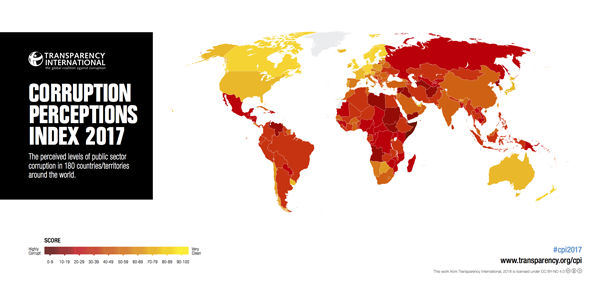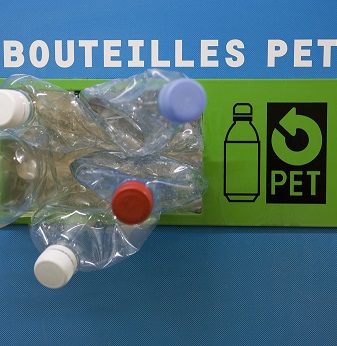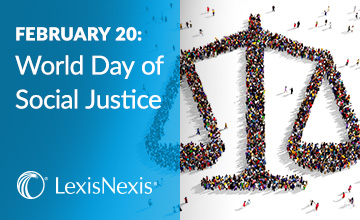LexisNexis Legal & Professional,
LN BIS blog, 23rd Feb 2018
Supporting goal 10 (reduced inequalities) and goal 16 (peace, justice and strong institutions) the world’s most corrupt countries have been revealed in Transparency International’s 2017 Corruption Perceptions Index.
Brightmine,
23 February 2018
In Guisado v Bankia SA and others, the European Court of Justice (ECJ) held that there is nothing in EU law to prevent a pregnant worker from being included in collective redundancies. This sets out legal implications for pregnant workers and aligns with goal 5.
LexisNexis Legal & Professional,
LN BIS blog, 20th February 2018
Supporting goal 10 (reduced inequalities), goal 8 (decent work and economic growth) and goal 16 (peace, justice and strong institutions) this blog discusses the fight for social justice and the links with inclusion and decent work for migrants in a global economy.
ICIS,
ICIS News, 09 February 2018
Supporting Goal 12. The use of plastics in packaging has been thrust into the spotlight in recent months. A renewed focus on marine waste including microplastics as well as still high landfill rates for plastics has led for calls for a reduction in single-use plastics.
Elsevier,
Hematology/Oncology Clinics of North America, Volume 32, Issue 1, February 2018, Pages 11-21
This content links with Goal 3: Good health and well-being and Goal 10: Reduced Inequalities by providing a summary of current understanding of the cause, cell types, signaling pathways, and effector cytokines implicated in pathogenesis.
LexisNexis Legal & Professional,
BIS blog, 29th Jan 2018
At the World Economic Forum in Davos on Thursday 24 January, Theresa May called on shareholders to put pressure on the companies they invest in to improve their "social impact" supporting goal 10 (reduced inequalities) and goal 16 (peace, justice and strong institutions).




